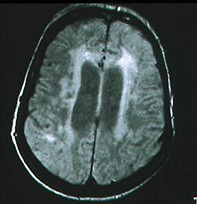Peer Reviewed
Feature Article Neurology
Diagnosing and evaluating patients with a transient ischaemic attack
Abstract
A transient ischaemic attack (TIA) is not a benign event and should under some circumstances be treated as a medical emergency.
Key Points
- A transient ischaemic attack (TIA) is a clinical syndrome characterised by the sudden onset of focal neurological symptoms and/or signs that last less than 24 hours.
- A focused and prompt history and physical examination are important for all patients with acute transient neurological symptoms to confirm the diagnosis of the cerebral ischaemic syndrome and to localise the vascular territory affected.
- All patients with an ABCD2 score of 4 or greater should be sent to an emergency department for urgent evaluation; those with a score of less than 4 can complete their investigations as outpatients.
- Failure to adequately recognise and evaluate a TIA could mean missing an opportunity to prevent permanent disability or death.
Purchase the PDF version of this article
Already a subscriber? Login here.

